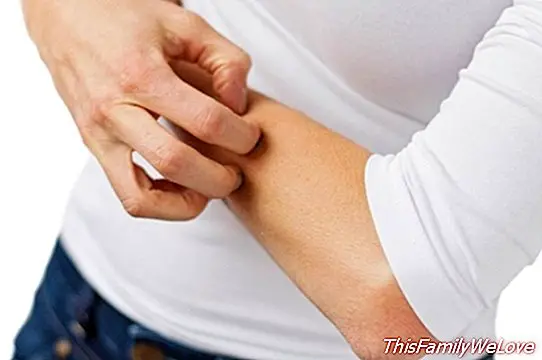Live with psoriasis

The psoriasis is a skin disease, not contagious, that affects about one million people in Spain, that is, 2% of the population, of which between 15% and 20% suffers from moderate or severe . Each year, 60 people out of every 100,000 begin to suffer from psoriasis, with the proportion being slightly higher in women than in men.
It is estimated that 100 million people around the world coexist with the problem of psoriasis, seriously affecting their daily lives and it is estimated that between 10% and 30% of these will develop psoriatic arthritis. There is a great ignorance in society, which leads to situations of anxiety and fear on the part of the patient when it is diagnosed.
What is psoriasis?
Psoriasis in a chronic disease of the skin, recurrent and non-contagious. The skin becomes inflamed, producing red, thickened plaques with silvery scaling, usually located on the scalp, elbows, knees and lower back area. It frequently affects the nails and in 30% it affects the joints. Psoriasis appears in the form of outbreaks.
When and how does psoriasis manifest itself?
1. Age Psoriasis usually appears between 15 and 35 years, although it can occur at any age. The average age is 29 years, with a certain tendency to start earlier in women than in men (28 years in women, 32 in men). In general, at the age of 30 years more than 60% of patients have started their disease.
2. Symptoms. It manifests with obvious physical signs such as itching, redness and scaly lesions, swollen and inflamed, varying the extent of skin affected from one person to another.
The most common physical symptoms of psoriasis are: scales (94%), itching (79%), superficial inflammation of the skin (erythema, 71%), infiltrated skin (31%), bleeding (29%), burning (21 %) and fatigue (19%).
3. Presentation. Plaque psoriasis is the most common form (80% of cases), although it can also appear in the form of drops (psoriasis guttata) or, as an extensive redness that affects a large part of the skin surface (pustular or erythrodermic). On the other hand, the common occurrence of psoriatic arthritis and psoriasis is common, with the appearance of pain, redness and swelling of the extremities of the fingers and toes.
4. Injuries. In severe cases of psoriasis the lesions can cover a large part of the skin surface and between 13% and 50% of the people with psoriasis, it has affected the nails. Its frequency increases when the disease starts before the age of 30, is accompanied by arthritis (where it reaches 70%) or reaches an important severity.
The new treatments against psoriasis
The most novel are the biological treatments based on proteins directed specifically against the mechanisms that produce the disease. The administration of this drug manages to whiten the skin, control the manifestations and the progression of joint damage produced by psoriatic arthritis.
The dermatologist is the one who individualizes the treatment according to each patient: severity of the disease, medical history, moods, etc., applying later topical treatments, phototherapy, systemic treatments or new therapies. In addition, psychological support is important to both the patient and the family.
The main objective of the treatments is to improve the disease so that it does not interfere in the daily life of the patient, because although psoriasis is not cured, at present there are medicines that allow to control the disease and, therefore, improve the patient's life quality .
Psoriasis and atopic dermatitis
Many people wonder if atopic demartitis has a direct relationship with psoriasis. In principle, there may be a greater risk of suffering psoriasis in those who had atopic dermatitis, but does not mean that the fact of having one inevitably leads to suffer the other.
Atopic dermatitis in 90% of cases is suffered by children and psoriasis appears as of adolescence. The confusion between one and the other is given by their similar external manifestations. What is certain is that they have a similar immunology and similar treatments.
Psoriasis affects the quality of life
In addition to external signs, psoriasis has an important impact on the quality of life of patients, as it affects very seriously the development of daily activities and has a marked component of psychological affectation: depressive symptoms, isolation, aesthetic, social rejection and labor, shame, etc.
In fact, its impact on the quality of life of the patient can be compared, or even overcome, to other chronic diseases such as hypertension, cancer or coronary heart disease.The best knowledge, by society, of what psoriasis means and what it means for the patient is, without a doubt, the first step towards full integration of the patient.
Vicen Ramón
It can stimulate you:
- Psoriasis, a barrier to sports
- The hidden dangers of gel nails
- How to take care of children's nails
- How to take care of the nails




